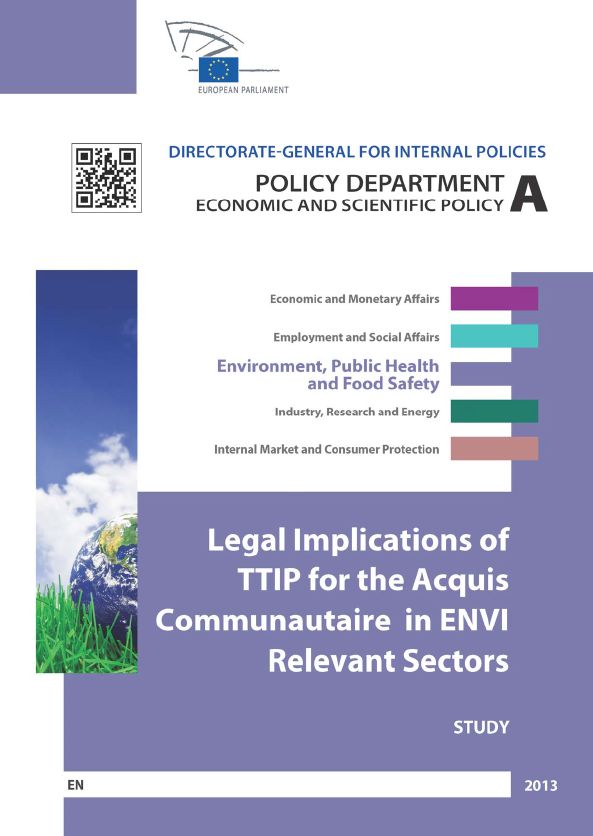In this project, Ecologic Institute and BIO IS have been commissioned by the European Parliament to investigate the potential impacts of the Transatlantic Trade and Investment Partnership (TTIP) on the EU’s environmental and food safety policies and the EU’s right to regulate. TTIP is being negotiated between the US and the EU. The study provides recommendations regarding the role of the European Parliament in the negotiation of TTIP. The study is available for download.
In 2013, US and EU officials have begun negotiations on a free trade agreement dubbed the "Transatlantic Trade and Investment Partnership". If it goes into force, it will encompass nearly half of all global GDP and could play a large role in defining future trade negotiations across the globe. Negotiations will focus on issues such as the harmonisation of rules in various areas (technical standards, intellectual property) and investment protection, among other. The EU’s (leaked) negotiation mandate highlights that TTIP is not to lead to a downward harmonisation of environmental or safety standards or to curb the regulatory freedom of either side. Nonetheless, and on the basis of experiences with trade and investment agreements negotiated in the past, there are concerns, among non-governmental organisations (NGOs) and beyond, that TTIP could do precisely that.
To assess the impacts of TTIP on the EU, the study first discusses the legal effect of international trade and investment agreements within the EU legal order. Furthermore, several areas of conflict between US and EU law are identified, and then evaluated to draw out the differences between the two legal regimes: GMOs, chemicals regulations, treatment of poultry meat and emissions from aviation. Moreover, dispute resolution mechanisms common in international investment agreements and their potential impact on environmental regulation are discussed.
Recommendations to the European Parliament
In conclusion, the study recognizes that the strongest action that the European Parliament could take to impact TTIP would be to not give its consent to the negotiated agreement, a route it has taken in the past. Additionally, the European Parliament could play a role in increasing public awareness of TTIP negotiations and their impact and could stoke a political debate on relevant topics.
The authors recommend that the European Parliament pay very close attention to the precise wording of provisions regarding the environment, food safety, and investments set out in the final text in order to ensure that both parties are able to maintain the environmental and consumer protection standards that they deem necessary and appropriate.
The study [pdf, 884 KB, English] is available for download.






